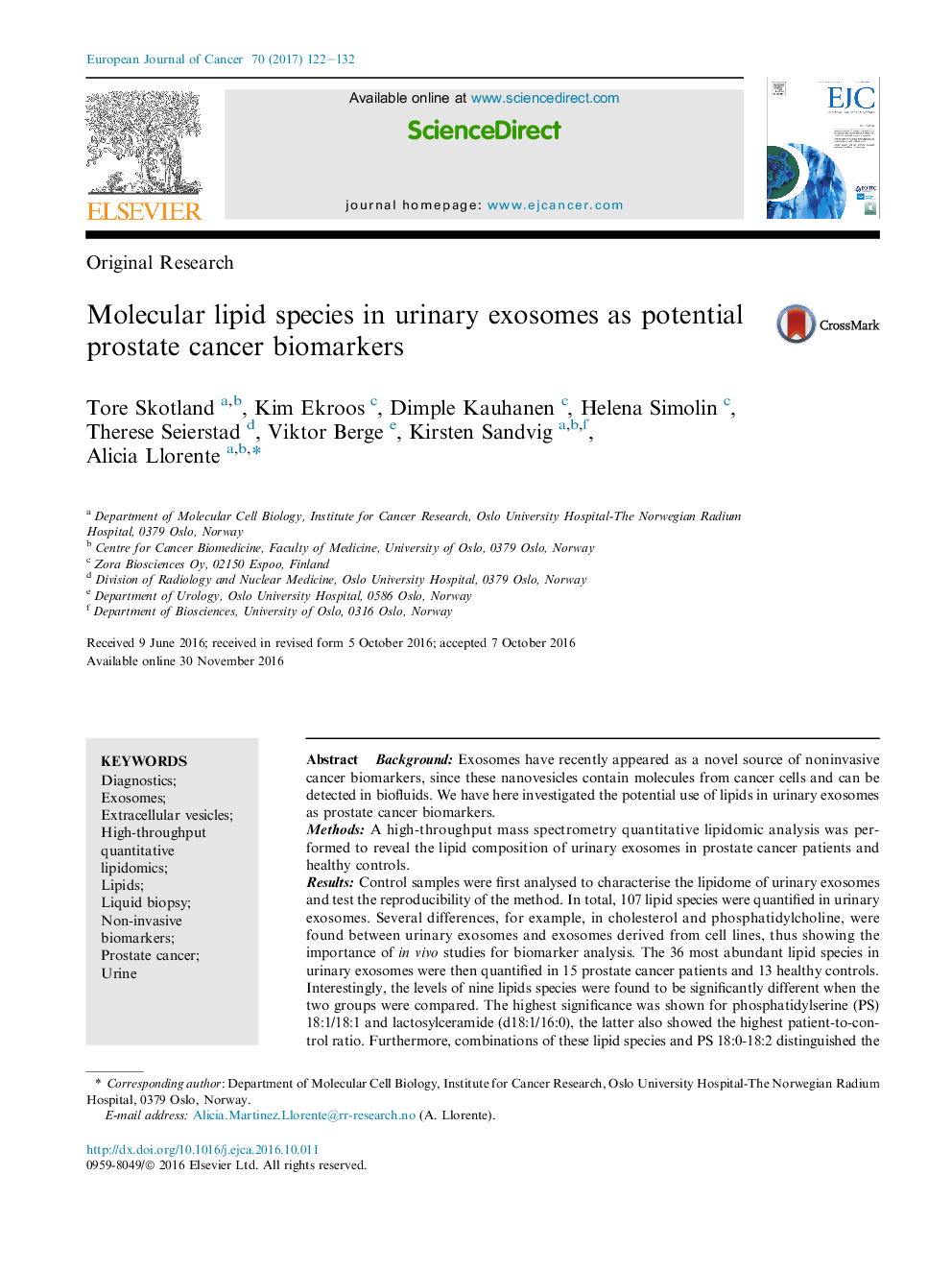| کد مقاله | کد نشریه | سال انتشار | مقاله انگلیسی | نسخه تمام متن |
|---|---|---|---|---|
| 5526815 | 1547063 | 2017 | 11 صفحه PDF | دانلود رایگان |
- Urinary exosomal lipids are a new source of non-invasive prostate cancer biomarkers.
- Combinations of three lipid species have a high diagnostic capacity for prostate cancer.
- The study reveals for the first time the lipidome of urinary exosomes in detail.
BackgroundExosomes have recently appeared as a novel source of noninvasive cancer biomarkers, since these nanovesicles contain molecules from cancer cells and can be detected in biofluids. We have here investigated the potential use of lipids in urinary exosomes as prostate cancer biomarkers.MethodsA high-throughput mass spectrometry quantitative lipidomic analysis was performed to reveal the lipid composition of urinary exosomes in prostate cancer patients and healthy controls.ResultsControl samples were first analysed to characterise the lipidome of urinary exosomes and test the reproducibility of the method. In total, 107 lipid species were quantified in urinary exosomes. Several differences, for example, in cholesterol and phosphatidylcholine, were found between urinary exosomes and exosomes derived from cell lines, thus showing the importance of in vivo studies for biomarker analysis. The 36 most abundant lipid species in urinary exosomes were then quantified in 15 prostate cancer patients and 13 healthy controls. Interestingly, the levels of nine lipids species were found to be significantly different when the two groups were compared. The highest significance was shown for phosphatidylserine (PS) 18:1/18:1 and lactosylceramide (d18:1/16:0), the latter also showed the highest patient-to-control ratio. Furthermore, combinations of these lipid species and PS 18:0-18:2 distinguished the two groups with 93% sensitivity and 100% specificity. Finally, in agreement with the reported dysregulation of sphingolipid metabolism in cancer cells, alteration in specific sphingolipid lipid classes were observed.ConclusionThis study shows for the first time the potential use of exosomal lipid species in urine as prostate cancer biomarkers.
Journal: European Journal of Cancer - Volume 70, January 2017, Pages 122-132
